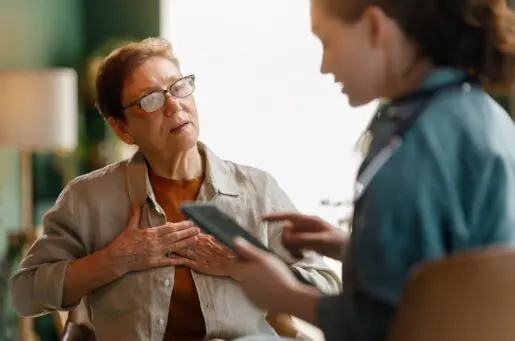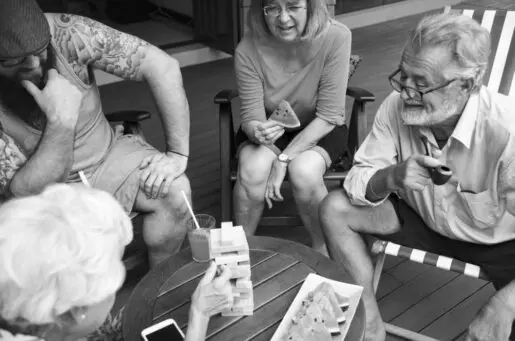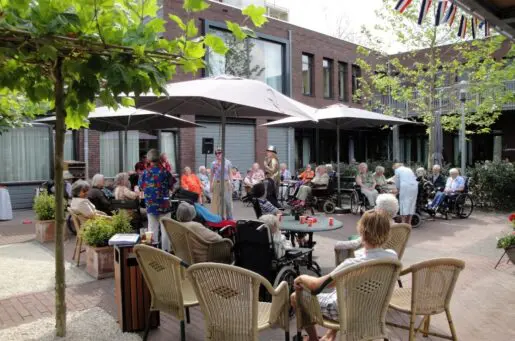Bioethics Forum Essay
Living with Pain and Opioid Addiction: Bioethics Narratives
Carlyn Zwarenstein, a resident of Canada who lives with an autoimmune disease, characterizes the United States’ approach to opioid regulation as “draconian,” and fears that her country might follow suit. “One shift in policy,” she says, “and I would be quickly dealing not just with withdrawal symptoms, but with the more existential pain of trying to live without the daily, short-term pain relief that opioids have provided me for six years.”
As the opioid crisis reaches a fever pitch, public perception often lumps chronic pain patients and those with opioid use disorders under the same stigma-tainted umbrella of drug user. But the full picture of human interaction with pain, pain management, and addiction is far from black and white. In its most recent narrative symposium, edited by Kelly K. Dineen and Daniel Goldberg, Narrative Inquiry in Bioethics published personal stories from those living with chronic pain or opioid use disorder. Both groups comment on their need for medical treatment and ethical care.
“Within an hour of taking a dose of [the opioid] tramadol, I am able to sit down without pain, without fidgeting,” writes Zwarenstein. “No longer needing to focus on my breath or on mindfully observing the texture of pain in order to get through it, I can attend to the world around me, follow a conversation, wash the dishes, bend down to pick things up, walk my children to school or sit with them to watch a movie. I can work. I can finish this essay and still make dinner.” Recognizing how addictive the drugs can be, the mother of two uses a synthetic opioid as “sparingly” as possible. Read her essay here.
As a clinical ethicist and chronic pain patient, Stowe Locke Teti echoes the necessity of opioids for pain management, as well as the vigilant regulation required to manage the drugs’ dangers. Faced with long-term debilitating spinal pain and confined to his bed, Locke Teti learned that surgery was his only option. To prepare for the procedure, physicians weaned him off his medication, a process that left him in agonizing pain. “I remember the point at which I no longer thought of my body as mine, but rather as a shell, damaged and full of torment,” he writes. Locke Teti’s story illustrates how, without opioid support, illness can degrade the cohesive sense of self that is necessary for meaningful connection with family, friends, and society.
For other individuals featured in the symposium, opioid use became a greater source of suffering than the pain for which the drugs were prescribed. One anonymous writer was prescribed medication after suffering a fracture, but he was not provided with a plan for tapering off the drug. He realized he was addicted once the prescription ended, and his behavior spiraled into illicit drug use, wreaking havoc to his professional life. He ends his narrative with a plea to physicians: “You are not doing a healthy young person any favors at all by keeping them on opioids. Get them off as soon as possible.”
In his compelling narrative, physician Peter Grinspoon describes his habit of falsifying prescriptions to fuel his opioid addiction, resulting in felony charges and the loss of both family and career. “I ended up living with my elderly parents, unable to see my small children,” he writes. Grinspoon found solace in his recovery program, where addiction treatment was implemented with “compassion and empathy.” This approach, he states, “opened my eyes . . . and helped prevent me from being overcome by my guilt, by my shame, and by the remorse I had for destroying my life.”
Patients with chronic pain or opioid use disorder—the latter, though stigmatized, saddled with the very real challenges of addiction—face the convoluted landscape of opioid legislation with trepidation. In his commentary on the symposium, bioethicist Travis Rieder warns against overly simplistic approaches to the problem. “We must stop swinging the pendulum between radical permissiveness and opioid abandonment and fear,” he writes. He emphasizes that appropriate treatment for chronic pain patients and those with opioid use disorder demands creative and systematic change. The narratives featured in NIB reveal no easy answers but offer an informed and human foundation for compassionate action.
Cara Crew is a graduate student at the Bioethics Institute at Loyola Marymount University. Mary Click is the communications coordinator for Narrative Inquiry in Bioethics.
45% of The Hastings Center’s work is supported by individual donors like you. Support our work.














I live with chronic pain, often severe. I rely on opioids but am very careful to use them only as prescribed which often leaves me in pain until my next dose. I fear draconian results because of those who misuse. I am already lied to by my providers. I offered to reduce the milligrams of opioid I was being prescribed so that I could have a dose every 4 hours to prevent break-through pain but was told “the law only allows 5 pills a day.” As a retired health law attorney, I knew this was a lie, confirmed by the pharmicist. I offered to use medical cannabis to reduce the amount of opioid usage but the head provider of the clinic is adamantly opposed to medical cannabis. I feel left between a rock and a hard place. I am in my 70s. I have been involved with medical ethics since the 1980s. I feel terrified daily by the “opioid crisis.” I was once given a blood pressure medication that blocked the opioid effects. My pain was off the charts and my blood pressure soared but I felt serene. I lay on my bed and wrote poetry–something I don’t do. Other than the pain and soaring BP, I had no negative side effects. These BP medications can be used for opioid withdrawal with minimum negative side effects and I know they are being studied. Yet, I hear and read nothing about their use for folks addicted to opioids but without a medical need for their use. Why not?